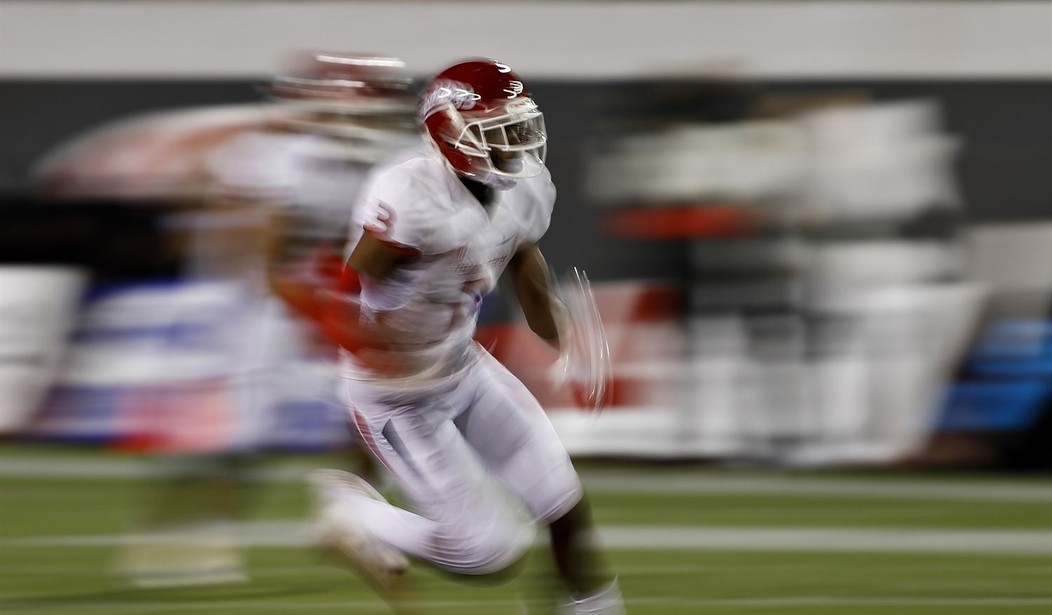I know I’ll probably get a lot of hate for this one, but that comes with the territory.
Sean Hannity, fake conservative grifter extraordinaire, never gets hate from his viewership because he never says anything challenging or notices anything remotely interesting. It’s all doctrinaire dogma, all the time.
I’d rather take the slings and arrows than be another Sean Hannity clone. That market’s saturated to hell anyway.
Related: Vivek Ramaswamy Dominates Sean Hannity in Interview
Let’s get this disclaimer out of the way from the start: I actually like sports. Not owning a television and living outside of the U.S. where no one cares about American football, I don’t get a chance to catch live games unless there’s an illegal livestream available. But I watch highlights on the web.
The UGA vs. Bama game was very entertaining this past weekend. The SEC is obviously the best conference by far. I don’t really get how an undefeated team from a major conference like FSU could be denied a playoff spot, no matter how inferior their league is — literally what else could they have done to earn it? — but whatever. I get the argument for Bama getting in and I don’t actually care very much.
I played lots of sports as a kid and an adolescent— soccer, baseball, basketball, hockey, etc. — and I always liked watching football. There’s a reason sports are universally found in every culture throughout history in one form or another: they are valuable tools for recreation, socialization, and character-building in youth and even in adulthood. Sports impart valuable lessons about the merits of healthy competition within boundaries. They actually, as I have heard Jordan Peterson explain at length, foster cooperation just as much as they do competition, as all participants are required to cooperatively abide by the rules of the game with sanctions if they do not. They’re also — and this is perhaps most important at all in the age of Equity™ and The Most Secure Election of All Time™ — entirely meritocratic. You either perform or you don’t — no nepotism, no Machiavellian scheming, no vote-rigging.
Still, there is something off-putting about adult men — finding themselves in a totally decaying civilization — who, in Nero-fiddling-on-the-roof fashion, devote seemingly every free waking moment to pondering college football rankings.
I recall hanging out in the gym in high school in Atlanta back in the aughts when I noticed that, for whatever reason, about 90% of the conversations between fully grown adult men in their 40s and beyond revolved around talking smack about the Falcons or whatever.
Similarly, there’s a guy named Paul Finebaum whose entire career is apparently spent speaking somberly into the camera about college football rankings.
Consider the tone of his voice and his rhetoric, and one comes away with the impression that what he is discussing is a matter of life and death instead of a game in which dudes smash each other on a field in order to advance a ball into a designated area for points.
(For the record, this phenomenon is not confined to the United States, as anyone who’s witnessed European soccer hooligans in action can confirm.)
Two months ago or so, I found a book in the corner of a dusty bookstore in Guadalajara, Mexico titled “Culture Against Man,” written by Jules Henry in the '60s. It’s billed as an ethnography of American society in the post-WWII era.
One chapter is devoted to an analysis of a typical fictional American town of the era that centers its identity around its high school football program and what the players themselves get out of it. Here’s an excerpt:
The reason athletics have such high status is that the teams generate Self-substance to some degree for almost everyone, not just for the athletes…
The rooter is in the unique position of being able to vibrate during the game as if he were the true Self, and to accept team success while insulating himself against the effects of failure…
When we return to [high school football player] Jim Evans we can understand the bio-cultural pressures on him, and something — though not everything — of why he is ungrammatical, laconic, and apparently somewhat dull: his social mission is fulfilled. Looking at his friendships we notice that they are based on team games, an early form of juvenile male activity. The narrowing of one’s friendships to team mates in the teens is the persistence into adolescent life of a pattern that had intense meaning in childhood. Thus the athlete tends to be a person whose basic adjustment to males has not changed, whose relation to males continues to be understandable largely in terms of childhood behavior that was so rewarding that it has persisted.
I suspect that some of this behavior of regressively grasping for identity in sports and sports teams is rooted in the loss of transcendent meaning that Nietzsche wrote about in the 1800s when he declared that “God is dead.”
For all of the material abundance that the modern world has provisioned — no small thing, I can tell you, having seen Third World deprivation up close and personal — it’s failed miserably to feed the spirit.










